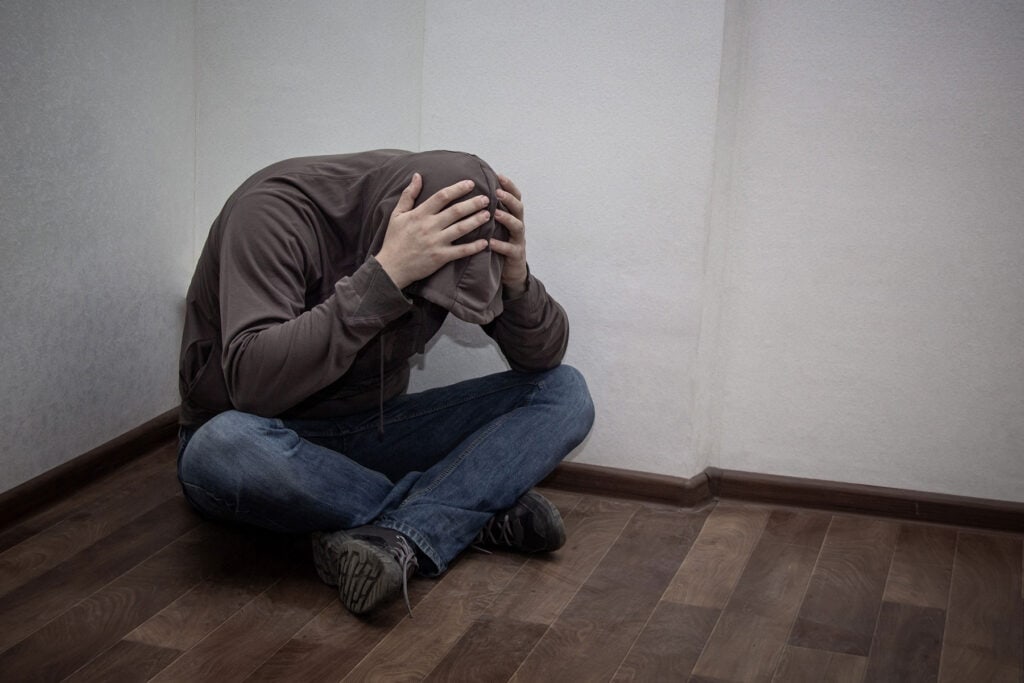With any highly addictive drug, like heroin, it is very easy to become dependent on the temporary high and relief one feels when using it. This high comes with a price, and it is not only monetary. There are many long-term effects and havoc the drug can wreak upon one’s health and life. Heroin use can also be deadly if one overdoses.
If you or a loved one struggles with a heroin addiction, seek professional help immediately. Help is just a phone call away. Find out more heroin facts and how to get heroin abuse treatment by calling the treatment team at Virtue Recovery Las Vegas at 866.520.2861 today.
The Facts About Heroin
If you are unfamiliar with heroin and its effects, then it’s essential to educate yourself. Five facts about heroin include:
- Heroin is naturally derived from poppy plants instead of produced synthetically in a lab like many opioid drugs.
- Opioids like heroin attach to brain receptors and block feelings of pain.
- The heroin high is a result of the flood of dopamine produced after taking the drug.
- The more of the drug used to achieve the desired effects, the higher one’s tolerance becomes and increases the risk of an overdose.
- Heroin depresses the central nervous system and can slow heart rate and breathing to dangerous levels.
Once addicted to heroin, it can be hard to stop using it, especially with withdrawal symptoms like anxiety, depression, and panic attacks. Getting professional help is the best way to overcome heroin addiction.
The Dangers of Heroin Use
Heroin use poses severe risks to both physical and mental health. Prolonged use damages vital organs like the heart, liver, and kidneys, increasing the risk of chronic diseases and infections. Sharing needles further exacerbates these dangers, leading to conditions like HIV and hepatitis. Psychologically, heroin addiction can intensify anxiety, depression, and suicidal thoughts, isolating individuals from their loved ones. Over time, heroin use alters brain chemistry, impairing decision-making and impulse control. The dangers extend beyond the individual, affecting families and communities, making professional intervention critical for recovery.
The Heroin Addiction Cycle
The cycle of heroin addiction begins with initial use, often driven by the need for pain relief or the allure of a euphoric high. Over time, individuals develop tolerance, requiring higher doses to achieve the same effects. This leads to physical dependence, where the body experiences withdrawal symptoms without the drug. Psychological dependence develops as heroin becomes a coping mechanism for stress or trauma. This cycle perpetuates compulsive drug-seeking behavior, leaving individuals trapped in a pattern of use despite the devastating consequences. Breaking this cycle requires comprehensive treatment that addresses both the physical and emotional aspects of addiction.
Signs and Symptoms of Heroin Addiction
Recognizing the signs of heroin addiction early can save lives. Common physical symptoms include:
- Constricted “pinpoint” pupils.
- Unexplained weight loss.
- Track marks or bruising from injection sites.
- Chronic fatigue or lethargy.
Behavioral signs may include:
- Sudden financial difficulties or stealing to fund drug use.
- Neglecting responsibilities at work, school, or home.
- Isolation from family and friends.
Psychologically, individuals may exhibit:
- Intense mood swings.
- Depression, anxiety, or paranoia.
- Loss of interest in activities once enjoyed.
If these symptoms are present, seeking professional help immediately is essential.
The Link Between Mental Health and Heroin Addiction
Heroin addiction often coexists with mental health disorders such as anxiety, PTSD, or depression, creating a complex cycle where each condition exacerbates the other. For some, heroin use begins as a way to self-medicate and numb emotional pain, but it ultimately worsens underlying mental health issues. Substance use can alter brain chemistry, increasing susceptibility to mood disorders. Effective treatment for heroin addiction must address these co-occurring conditions through dual-diagnosis programs, which integrate mental health therapy and addiction treatment. This comprehensive approach offers individuals the tools they need to heal fully.
Heroin Overdose: Recognizing and Responding
A heroin overdose is a medical emergency that requires immediate action. Signs of an overdose include:
- Slowed or stopped breathing.
- Unconsciousness or inability to wake up.
- Cold, clammy skin with a bluish tint to the lips or fingertips.
- Weak or absent pulse.
If you suspect an overdose:
- Call 911 immediately.
- Administer naloxone (Narcan) if available.
- Perform rescue breathing or CPR as directed by emergency responders.
- Stay with the individual until help arrives.
Naloxone can temporarily reverse the effects of heroin, but professional medical treatment is critical to prevent relapse or further complications.
The Cost of Heroin Addiction
Heroin addiction has devastating financial, emotional, and societal costs. For individuals, addiction often leads to job loss, financial instability, and significant healthcare expenses due to overdoses and chronic health issues. Families bear emotional and financial burdens, facing strained relationships and caregiving challenges. On a societal level, heroin addiction contributes to increased healthcare costs, law enforcement expenses, and lost productivity. Communities also face the heartbreak of lives lost to overdose. Addressing heroin addiction through effective treatment not only saves lives but also reduces these far-reaching costs.
Heroin and the Opioid Epidemic
Heroin is a significant contributor to the opioid epidemic, a crisis claiming thousands of lives annually. The rise of synthetic opioids like fentanyl has intensified the epidemic, as fentanyl is often mixed with heroin, increasing the risk of fatal overdoses. The epidemic highlights the urgent need for comprehensive solutions, including prevention, education, and treatment programs. Heroin addiction treatment, such as those offered at Virtue Recovery Las Vegas, plays a crucial role in combatting the epidemic. By providing individualized care and addressing the root causes of addiction, these programs offer hope to those impacted by this public health crisis.
How Heroin Abuse Treatment Can Help
A treatment program for heroin addiction can be customized for each person’s unique needs. Traditional talk therapies, medication-assisted treatment (MAT), and experiential therapies can create a personalized treatment plan that meets a client’s needs and schedule.
The first step in a treatment program is removing the drug from the body. This can be very difficult for most people as the withdrawal symptoms are severe. When supervised by professionals, this detox can be much more successful than trying to do it alone. This is when MAT may help ease withdrawal symptoms and manage drug cravings.
A combination of therapies is then utilized to provide the ongoing support needed in recovery. Recovery is lifelong, and arming yourself with tools to manage addiction for the long haul effectively is imperative. Therapies can include:
- Individual therapy
- Group therapy
- Family therapy
- Cognitive-behavioral therapy (CBT)
- 12-step programs
- Relapse prevention
- Experiential therapies such as yoga, equine, art, and music
Managing an addiction does not end once you leave the doors of a treatment facility. It’s essential to have a sober support system to go home to and resources and tools at your disposal to lean on when you need them.
Reach Out to Virtue Recovery Las Vegas for Heroin Addiction Treatment
Recovering from an addiction requires the right kind of support and treatment. The relapse rate is much higher without the support of a professional treatment team at a facility like Virtue Recovery Las Vegas. Our treatment team is dedicated to helping others get the help they need and deserve to live a better life, free from drugs and alcohol.
Our professional team has many years of combined experience to assist clients in recovering from addiction. Contact our team today at 866.520.2861 or via our online form to learn more.
FAQs
What types of treatments are available for heroin addiction?
Treatments include detoxification, medication-assisted therapy (MAT), behavioral therapies, and support groups.
What is medication-assisted therapy (MAT)?
MAT combines medications like methadone, buprenorphine, or naltrexone with counseling and behavioral therapies to treat heroin addiction.
How does detoxification work for heroin addiction?
Detoxification safely manages withdrawal symptoms under medical supervision, often as the first step in treatment.
What behavioral therapies are effective for heroin addiction?
Cognitive-behavioral therapy (CBT), contingency management, and motivational interviewing are effective therapies.
Can heroin addiction be treated in an outpatient setting?
Yes, outpatient programs offer flexibility and allow individuals to continue daily activities while receiving treatment.
What support groups are available for heroin addiction?
Support groups like Narcotics Anonymous (NA) provide peer support and accountability.
How long does heroin addiction treatment last?
Treatment duration varies but often includes long-term follow-up to prevent relapse.
Are there any holistic approaches in heroin addiction treatment?
Yes, holistic approaches may include yoga, meditation, art therapy, and acupuncture.
What role do family and friends play in heroin addiction recovery?
Family and friends provide crucial support, and family therapy can be part of the treatment plan.
How effective is heroin addiction treatment?
Effectiveness varies, but comprehensive, individualized treatment plans increase the likelihood of successful recovery.
What are the signs that someone needs heroin addiction treatment?
Signs include compulsive drug seeking, withdrawal symptoms, and neglect of responsibilities.
Can heroin addiction be cured?
While there is no cure, heroin addiction can be effectively managed with ongoing treatment and support.
What should I expect during the initial assessment for treatment?
The initial assessment includes medical evaluations, psychological assessments, and creating a personalized treatment plan.
Are there any medications that can prevent heroin relapse?
Yes, medications like naltrexone help prevent relapse by blocking the effects of opioids.
What are the risks of not treating heroin addiction?
Untreated heroin addiction can lead to severe health issues, overdose, and death.
How Can Knowing Facts About Heroin Help in Avoiding Drug or Alcohol Relapse?
Knowing the facts about heroin can provide helpful tips to avoid drug relapse. Understanding the dangers and consequences of using heroin can act as a deterrent when faced with temptation. Learning about the long-term effects and risks associated with heroin can reinforce the commitment to maintaining sobriety.
Resources
https://nida.nih.gov/research-topics/heroin
https://www.dea.gov/factsheets/heroin









